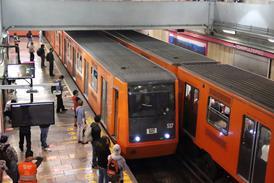Close menu
- Home
-
News
- Back to parent navigation item
- News
- Traction & Rolling Stock
- Passenger
- High Speed
- Freight
- Infrastructure
- Policy
- Technology
- Ticketing
- Business
- Research, Training & Skills
- Accessibility & inclusion
- People
- Urban rail news
- Suburban and commuter rail
- Metro
- Light rail and tram
- Monorail and peoplemover
- Regions
- InnoTrans
- In depth
- Events
- Data
- Maps
- Tenders & Jobs
- Sponsored content
- Insights
Rail reopenings to support climate-friendly transport
By Railway Gazette International22 June 2021

GERMANY: Infrastructure manager DB Netz has identified 20 lines totalling 245 route-km which it intends to reactivate for both freight and passenger services by 2030 as part of an initiative to provide environmentally friendly transport alternatives.
Already have an account? LOG IN
To continue…
You’ve reached your limit of content for the month
Get enhanced access to Railway Gazette news and weekly newsletters.
Site powered by Webvision Cloud














